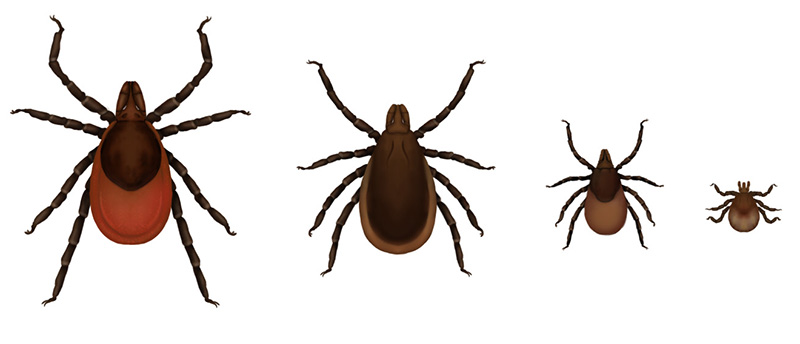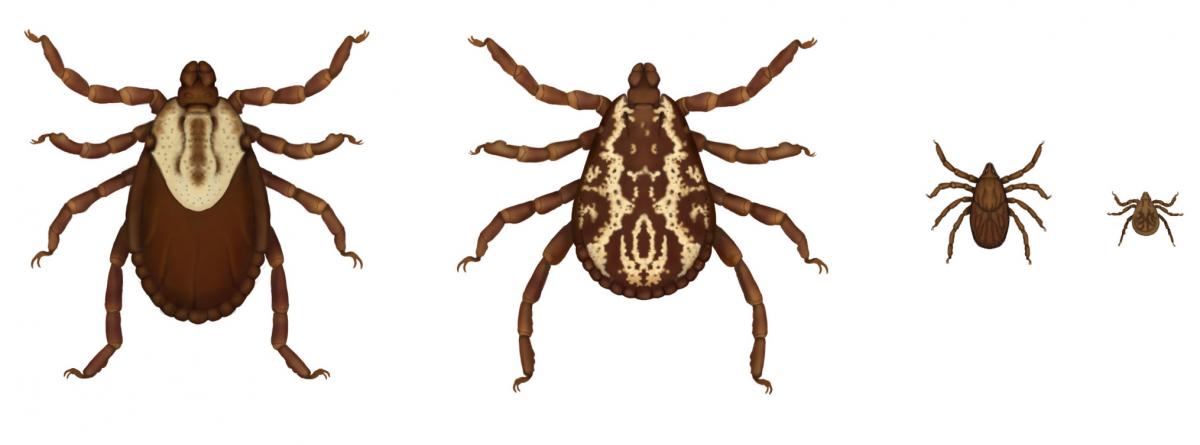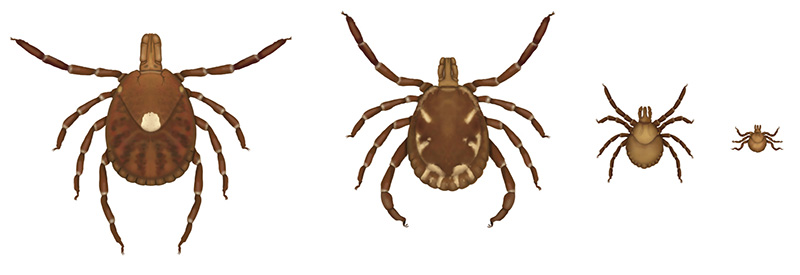Here is a quick guide to ticks on Martha's Vineyard. For more information about prevention and treatment, the Martha's Vineyard Boards of Health has an informative website on tickborne illness.
Deer Tick

How to ID
Very small and slow moving. Looks like a poppy seed or the period at the end of a sentence. Adults are slightly larger, about the size of a sesame seed. Females have a red shield; males are all black.
Habitat
More prevalent on the moraine, north of State road in Chilmark and Aquinnnah and in select areas in West Tisbury. Also common in Chappaquddick and in wet areas with plants like sweet pepperbush or blueberry.
Season
Present all year, but less prevalent during peak summer months Nymphs appear in early May; larvae hatch in fall, causing large numbers in late September/early October.
Diseases
Lyme (rash found near bite in 70 per cent of cases); Babesiosis; Anaplasmosis (feverish conditions); Myamotoi disease (similar to Lyme).
Dog Tick

How to ID
Largest of the ticks, about a quarter-inch thick. Only adults are commonly seen, because nymphs and larvae stay on one host. Females have creamy white area; males have white racing stripes on their back.
Habitat
Often found in long grasses or near dunes, especially on beaches on the south side of the Island.
Season
Present during the warm summer months; will generally peter out in the fall.
Diseases
In rare cases, carry Rocky Mountain spotted fever; also rarely infect rabbits with tularemia.
Lone Star Tick

How to ID
Fast moving. Nymphs tend to be the same size as deer ticks, but are rounder and more reddish/tan. Adults are generally between a deer tick and dog tick in size. Females have a white dot on their back; males do not.
Habitat
Less is known about habitat, but seem to have a similar range to deer ticks. Currently concentrated on Chappaquiddick and Aquinnah, but ticks have been found in West Tisbury. Tend to be found in large clusters near deer trails.
Season
Appear in April and are present during the summer months. It is currently unclear when they die off for winter on the Vineyard.
Diseases
Ehrlichiosis (a rare form of spotted fever); Rickettsia amblyommii (febrile disease, unlikely to be fatal); STARI (similar to Lyme).






Comments (1)
Comments
Comment policy »